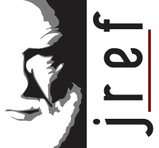Here is a recap of the stories that appeared last week at Science-Based Medicine, a multi-author skeptical blog that separates the science from the woo-woo in medicine.
Brain-Based Learning, Myth versus Reality: Testing Learning Styles and Dual Coding (Josh Cuevas) The learning styles concept has become very popular, but it’s based on a myth. There is virtually no evidence to support matching teaching styles to students’ visual, auditory, or kinesthetic learning preferences. An alternate theory, dual coding, is better supported by evidence: it appears that extra visual information improves recall for everyone.
Andrew Wakefield, the MMR, and a “mother warrior’s” fabricated vaccine injury story (David Gorski) A court judgment in the UK has determined that a mother fabricated information about her autistic son, recounting numerous health issues that appear nowhere in his medical records. Her story changed to fit the vaccine/autism hypothesis after she became aware of Andrew Wakefield’s now-discredited research. She subjected her son to all kinds of quackery and even allowed him to suffer for a year with an untreated tooth abscess, planning to deliver the tooth to Wakefield.
Does the Movie Fed Up Make Sense? (Harriet Hall) The movie Fed Up is an advocacy documentary that blames the obesity epidemic on sugar, the food industry, and government inaction. It raises awareness of childhood obesity and of hidden sugars in processed foods; but its presentation is biased and it gets a lot of its facts wrong. Sugar is only one part of the obesity problem, not because it is inherently bad, but because of its contribution to excess calorie intake.
Neuro-Acupuncture and Stroke (Steven Novella) An acupuncture center claims that scalp acupuncture helped a patient recover from stroke. Many stroke patients recover without treatment, and it’s unlikely that acupuncture had any effect in that case. Acupuncture is a highly implausible treatment for stroke; it is a failed hypothesis that is not supported by the evidence and should be abandoned.
Connecticut “modernizes” naturopathic scope of practice (Jann Bellamy) Legislation in Connecticut has expanded the scope of naturopathy practice to include the authority to diagnose and treat. Connecticut naturopaths are still trying to get prescription privileges. Their education and training is wanting, and their practice is not science-based or even reality-based. Trying to integrate them into the mainstream medical system is a mistake.
Placebo Speculations (Mark Crislip) Placebos are inert; why do people respond to them? There are some intriguing hints from recent research. People with certain genes perceive pain more acutely and are more likely to respond to placebo. And a study in mice found that exposure to male odors dulled pain.
Brain-Based Learning, Myth versus Reality: Testing Learning Styles and Dual Coding (Josh Cuevas) The learning styles concept has become very popular, but it’s based on a myth. There is virtually no evidence to support matching teaching styles to students’ visual, auditory, or kinesthetic learning preferences. An alternate theory, dual coding, is better supported by evidence: it appears that extra visual information improves recall for everyone.
Andrew Wakefield, the MMR, and a “mother warrior’s” fabricated vaccine injury story (David Gorski) A court judgment in the UK has determined that a mother fabricated information about her autistic son, recounting numerous health issues that appear nowhere in his medical records. Her story changed to fit the vaccine/autism hypothesis after she became aware of Andrew Wakefield’s now-discredited research. She subjected her son to all kinds of quackery and even allowed him to suffer for a year with an untreated tooth abscess, planning to deliver the tooth to Wakefield.
Does the Movie Fed Up Make Sense? (Harriet Hall) The movie Fed Up is an advocacy documentary that blames the obesity epidemic on sugar, the food industry, and government inaction. It raises awareness of childhood obesity and of hidden sugars in processed foods; but its presentation is biased and it gets a lot of its facts wrong. Sugar is only one part of the obesity problem, not because it is inherently bad, but because of its contribution to excess calorie intake.
Neuro-Acupuncture and Stroke (Steven Novella) An acupuncture center claims that scalp acupuncture helped a patient recover from stroke. Many stroke patients recover without treatment, and it’s unlikely that acupuncture had any effect in that case. Acupuncture is a highly implausible treatment for stroke; it is a failed hypothesis that is not supported by the evidence and should be abandoned.
Connecticut “modernizes” naturopathic scope of practice (Jann Bellamy) Legislation in Connecticut has expanded the scope of naturopathy practice to include the authority to diagnose and treat. Connecticut naturopaths are still trying to get prescription privileges. Their education and training is wanting, and their practice is not science-based or even reality-based. Trying to integrate them into the mainstream medical system is a mistake.
Placebo Speculations (Mark Crislip) Placebos are inert; why do people respond to them? There are some intriguing hints from recent research. People with certain genes perceive pain more acutely and are more likely to respond to placebo. And a study in mice found that exposure to male odors dulled pain.

